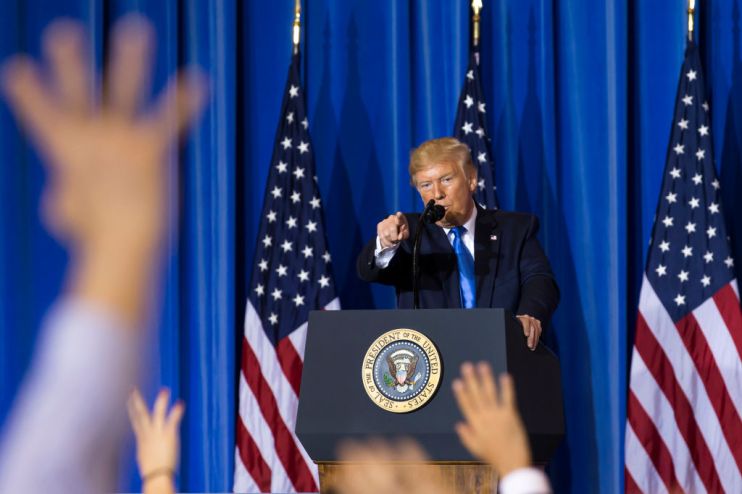Donald Trump is only leader to reject climate change proposals at G20 summit

US President Donald Trump has said the United States is not “being taken for suckers anymore” following his election in 2016.
The US pulled out of the 2015 Paris climate accord in 2017, with Trump claiming that the goals of the pact “disadvantage American workers and taxpayers”.
Read more: US and China agree to kickstart trade talks
Following the two-day G20 summit, it emerged that the US is the only country against committing to implement the agreement, which came about during Barack Obama’s tenure in the White House.
Prime Minister Theresa May had hoped to get all of the world’s biggest nations to stick to ambitious targets for tackling the climate issues.
While all other 19 leaders agreed, Trump did not.
“We have the cleanest water we have ever had, we have the cleanest air we’ve ever had, but I’m not willing to sacrifice the tremendous power of what we’ve built up over a long period of time and what I’ve enhanced and revived,” he said.
‘Wind doesn’t work’
Trump said he was unprepared to damage US companies and claimed factories could not run effectively on renewable energy sources.
“I’m not sure that I agree with certain countries with what they are doing, they are losing a lot of power. I am talking about the powering of a plant,” he explained.
“It doesn’t always work with a windmill. When the wind goes off, the plant isn’t working. It doesn’t always work with solar because solar’s just not strong enough, and a lot of them want to go to wind, which has caused a lot of problems.
“Wind doesn’t work for the most part without subsidy. The United States is paying tremendous amounts of subsidies for wind. I don’t like it, I don’t like it.”
The President defended his stance, denying that he was “ignoring” the problem, and claiming that action would affect the American economy.
Read more: Trump tells Putin not to “meddle” in the 2020 election
“We have the best numbers we’ve ever had recently, and I’m not looking to put our companies out of business,” he said.
“I’m not looking to create a standard that is so high that we’re going to lose 20 to 25 per cent of our production.”